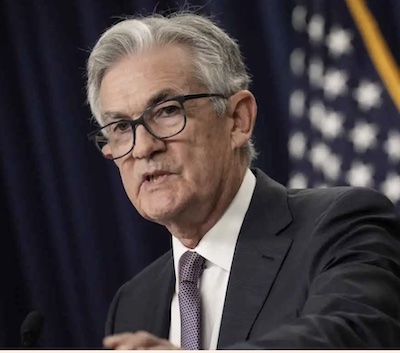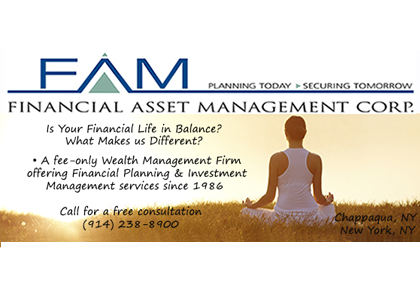Scott Kahan: The Great 2023 Recession Watch Continues

A lot of broken watches and their parts are scattered on the surface
The Great 2023 Recession Watch Continues: In our last chat with Scott Kahan, Certified Financial Planner ™ professional and President of Financial Asset Management Corp. in Chappaqua and NYC, we suggested we officially name 2023 as The Year of the Recession Watch. Not much has changed.
Are we still on Recession Watch?
 If they are following the financial news and hoping for clarity, it is confusing times. We are in the same place we’ve been for the last six months to a year. The economy remains strong with some signs of slowing although job creation continues. Meanwhile the markets are trying to figure out where we are. So, yes we are on Recession Watch but aren’t we always. There’s always a recession ahead. The problem is nobody ever knows when.
If they are following the financial news and hoping for clarity, it is confusing times. We are in the same place we’ve been for the last six months to a year. The economy remains strong with some signs of slowing although job creation continues. Meanwhile the markets are trying to figure out where we are. So, yes we are on Recession Watch but aren’t we always. There’s always a recession ahead. The problem is nobody ever knows when.
Is this Recession Watch more bewitching than usual?
Because we have become used to low inflation and it spiked up suddenly, some people think we can’t manage inflation without a recession. Or even that the Fed is trying to create one. But the Fed is never trying to create a recession. Rather when they raise interest rates to combat inflation they are trying to slow down the economy short of creating a recession. But that’s hard to do and often a recession is part of the outcome. As it was, famously for Paul Volcker during the early years of the Reagan administration from 1980 to ’83. The most severe recession since WWII.
Why is this time different?
We don’t know yet if this time is different. There is a lag time between interest rate increases and when it affects economic activity and it’s not an exact science. That said, when interest rates rise as quickly as they have this time, we usually have an economic slowdown. But there are few signs of that. People are still spending. Wages are rising. The housing market is strong, despite rising mortgage rates. In large part due to the low supply of homes on the market.
 It is important to remember that we are in uncharted territory to a certain extent because the root cause of the inflation was a pandemic. And our current interest rates are high only in comparison to the historically low rates preceding them. So the factors preceding this Fed tightening compared to Volker’s in the eighties are very different. And the economic impact may play out very differently as well.
It is important to remember that we are in uncharted territory to a certain extent because the root cause of the inflation was a pandemic. And our current interest rates are high only in comparison to the historically low rates preceding them. So the factors preceding this Fed tightening compared to Volker’s in the eighties are very different. And the economic impact may play out very differently as well.
So, we may have a soft landing…
Market watchers are talking about a soft fourth quarter and maybe Q1 2024. Inflation is abating though we may see a spike due to a rise in oil prices. The Fed has signaled they are close to the end of tightening with expectations of one more quarter percent raise. But remember, recessions are short. So stick to your plan.
Manage to your plan…
We always stay focused on our financial plan and manage to our preferred allocations – which with most of my clients is 60% stocks and 40% bonds. And we move in and out of them only when the allocations deviate significantly off the plan. Frankly, my clients have not been too busy reallocating because 2022 was a year where both stocks and bonds declined.
What happens when the Fed is done tightening?
 When the Fed signals they are done raising rates we are likely to see both a bond and stock market rally. Investors who took a hit on their bond portfolios in 2022 will be particularly relieved when they see the value of their holdings bounce back. And we are actually moving our clients from a strong short term bias within our bond holdings to more of an intermediate term.
When the Fed signals they are done raising rates we are likely to see both a bond and stock market rally. Investors who took a hit on their bond portfolios in 2022 will be particularly relieved when they see the value of their holdings bounce back. And we are actually moving our clients from a strong short term bias within our bond holdings to more of an intermediate term.
On the stock front, we are looking for market gains to broaden beyond the growth/tech areas that have driven the market up this year. That will be a sign of a firming economy. Another important thing to remember is that interest rates are not likely to come down as fast as they rose. Like at all other times it is important to maintain discipline within your portfolio as the Fed begins what may be a protracted period of easing.
What about the juicy Savings and CD rates out there?
We have clients who moved into Money Markets and and CDs up to 5.25%. We talk to our clients about what this money will be used for? If you need it in  the next year or 18 months – put it in cash. However, people should not be selling stocks or bonds to move into cash. I know it is tempting. If you put retirement money in cash because of the volatility in the market – then when rates come down the stocks or bonds you want to move into are going to be rising ahead of your move and you will miss out on the rallies.
the next year or 18 months – put it in cash. However, people should not be selling stocks or bonds to move into cash. I know it is tempting. If you put retirement money in cash because of the volatility in the market – then when rates come down the stocks or bonds you want to move into are going to be rising ahead of your move and you will miss out on the rallies.
Most important take away?
Whether the market is due for a soft landing or a recession – stop worrying about it. Stick to your allocations. If we have a recession – the stock market will rise before the economy strengthens. And you won’t be able to time the market this time any better than any other time. Your portfolio will tell you when to move money between stocks and bonds when your allocation ratios deviate from your plan. That’s the indicator you should be watching. As for cash – enjoy the interest rates while they last. But don’t think you can grab a risk free 5% and then catch a rising market later.
Financial Asset Management Corporation has provided fee-only financial planning and investment management services for individuals and small businesses in the Tri-State area since 1986. They serve 175 clients and manage over 325 million dollars in assets. (26 South Greeley Avenue, Chappaqua, NY, (914) 238-8900; www.famcorporation.com )
More on What To Do from Scott Kahan here:

















